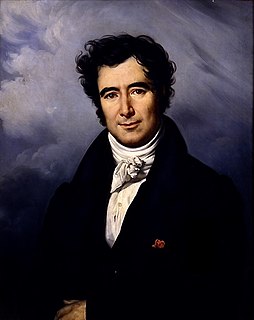A Quote by H. L. Mencken
The dying man doesn't struggle much and he isn't much afraid. As his alkalies give out he succumbs to a blest stupidity. His mindfogs. His will power vanishes. He submits decently. He scarcely gives a damn.
Related Quotes
Returning from the wilderness a man becomes a restorer of order, a preserver. He sees the truth, recognizes his true heir, honors his forbears and his heritage, and gives his blessing to his successors. He embodies the passing of human time, living and dying within the human limits of grief and joy.
A man is reputed to have thought and eloquence; he cannot, for all that, say a word to his cousin or his uncle. They accuse his silence with as much reason as they would blame the insignificance of a dial in the shade. In the sun it will mark the hour. Among those who enjoy his thought, he will regain his tongue.
When a woman submits to a man, it's the most precious gift she can give. Herself. Unreservedly. The man has to respect and honor that gift above all else. Even if he respects nothing else in the world, he must respect the woman in his care. It's his sworn duty to protect, honor and cherish his submissive. To take care of her and provide a safe haven. Someone who would put his own needs above his woman's is no man.
The necessity for struggle is one of the clever devices through which nature forces individuals to expand, develop, progress, and become strong through resistance. . .We are forced to recognize that this great universal necessity for struggle must have a definite and useful purpose. That purpose is to force the individual to sharpen his wits, arouse his enthusiasm, build up his spirit of faith, gain definiteness of purpose, develop his power of will, and inspire his faculty of imagination to give him new uses for old ideas and concepts. . .
Where it is in his own interest, every organism may reasonably be expected to aid his fellows. Where he has no alternative, he submits to the yoke of communal servitude. Yet given a full chance to act in his own interest, nothing but expediency will restrain him from brutalizing, from maiming, from murdering his brother, his mate, his parent, or his child. Scratch an 'altruist' and watch a 'hypocrite' bleed.
The natural inclination of man is to rely solely upon himself and to ignore the purpose of his existence as well as his relationship to God who is his spiritual father. If man will recognize his divine origin, he will then realize his Heavenly Father will not leave him alone to grope in darkness of mind and spirit, but will make available a power to influence him in right paths and into standards of good behavior. The Holy Ghost is that power.
When Christ was about to leave the world, He made His will. His soul He committed to His father; His body He bequeathed to Joseph to be decently interred; His clothes fell to the soldiers; His mother He left to the care of John; but what should He leave to His poor disciples that had left all for Him? Silver and gold He had none; but He left them that which was infinitely better, His peace.
I was often humiliated to see men disputing for a piece of bread, just as animals might have done. My feelings on this subject have very much altered since I have been personally exposed to the tortures of hunger. I have discovered, in fact, that a man, whatever may have been his origin, his education, and his habits, is governed, under certain circumstances, much more by his stomach than by his intelligence and his heart.
A man is known by the books he reads, by the company he keeps, by the praise he gives, by his dress, by his tastes, by his distastes, by the stories he tells, by his gait, by the notion of his eye, by the look of his house, of his chamber; for nothing on earth is solitary but every thing hath affinities infinite.
All things are God's already; we can give him no right, by consecrating any, that he had not before, only we set it apart to his service - just as a gardener brings his master a basket of apricots, and presents them; his lord thanks him, and perhaps gives him something for his pains, and yet the apricots were as much his lord's before as now.





































